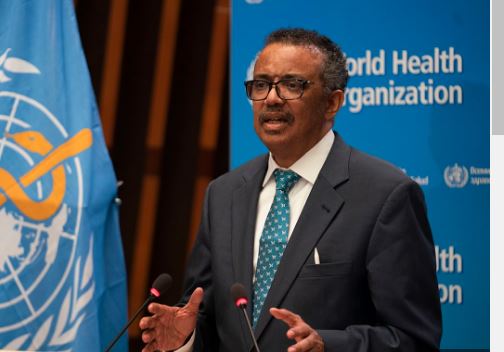The War on Sovereignty: The World Health Organisation’s Pandemic Agreement

Let’s begin with some historical context. So, the WHO was set up after the Second World War as the health arm of the United Nations, to support efforts to improve population health globally. Based on the concept that health went beyond the physical (encompassing “physical, mental and social well-being”), its constitution was premised on the concept that all people were equal and born with basic inviolable rights. The world in 1946 was emerging from the brutality of colonialism and international fascism; the results of overly centralised authority and of regarding people to be fundamentally unequal.
The WHO’s constitution is generally said to be intended to put populations in charge of health. However, in recent decades the WHO has proven this to be a disingenuous pronouncement of their constitution and functionality, especially because what we see instead is that its support base of core funding allocated by countries (based on GDP) has evolved into a model where most funding is directed to specified uses, and much is provided by private and corporate interests. And the priorities of the WHO have evolved accordingly, moving away from community-centred care to a more vertical, commodity-based approach.
This has the inevitable and unfortunate outcome in which the funds follow the interests and self-interests of these funders, and not necessarily the needs of those who were supposed to be served. And yet, this is what was announced to the world at the inception of the WHO.
Looking at the history of the WHO, we must also look at the first director general of WHO, which was Canadian physician Brock Chisholm, who served from 1948 to 1953. Now, his importance to this discussion is that as the first DG, he obviously contributed significantly to the philosophy of the WHO, but also quite curiously – he was nicknamed the “prophet of disaster”, and it is not difficult to appreciate why. Dr Brock Chisholm very infamously advocated for “bacteriological warfare”! He (very infamously) told a meeting of teachers in Toronto in 1947, “that bacteriological warfare promotes any little group of people or any little nation to a degree of proficiency in offensive warfare which makes it a competitor of any of the greater nations.” he added that “It is obsolete now to gauge a nation’s war strength by its capacity to produce aluminum, guns, tanks and so on.” And so, as far as he was concerned, the ability to weaponize biology was the ultimate means of measuring the strength of an entity or nation.
It is important to note that Dr Chisholm made these remarks in 1947, which was before he was appointed as the first DG of the WHO in 1948 – and so clearly, his philosophy was seen as plausible to enshrine into the fabric of an organization that would be responsible for world health. And by the way, it must not be missed that his philosophy was meant for global application because Dr Chishom was one of 16 international experts consulted in drafting the WHO’s first constitution. He even recommended the WHO’s name, with emphasis on the inclusion of the word “world”, which differentiated the WHO from the League of Nation’s Health Organization, which the WHO succeeded. And so, the history of the WHO reveals an entity that was founded on and influenced by a philosophy to ultimately weaponize biology across the globe, and not necessarily function for the health of many. But interesting about Dr Chisholm is his theories about children.
But, having looked at this historical context, let’s proceed to look at the functionality of the WHO in the status quo. First, the WHO is not alone in the international health sphere. While certain organizations’ such as UNICEF, private foundations and non-government organizations have long partnered with the WHO, the past two decades have seen an increase in collaboration from multiple organizations, particularly ‘public-private partnerships’ (PPPs) growing in influence. Notable among these public-private partnerships are the Gavi – the Vaccine Alliance (focused specifically on vaccines) and CEPI, an organization set up at the World Economic Forum meeting in 2017 to apparently manage pandemics; set up by the Bill & Melinda Gates Foundation, the Welcome Trust and the Norwegian Government. Gavi and CEPI, along with others such as Unitaid and the Global Fund, include corporate and private interests directly on their boards. The World Bank and G20 have also increased involvement in global health, and especially the so-called pandemic preparedness. But, when you follow the money, you see that this comes.
